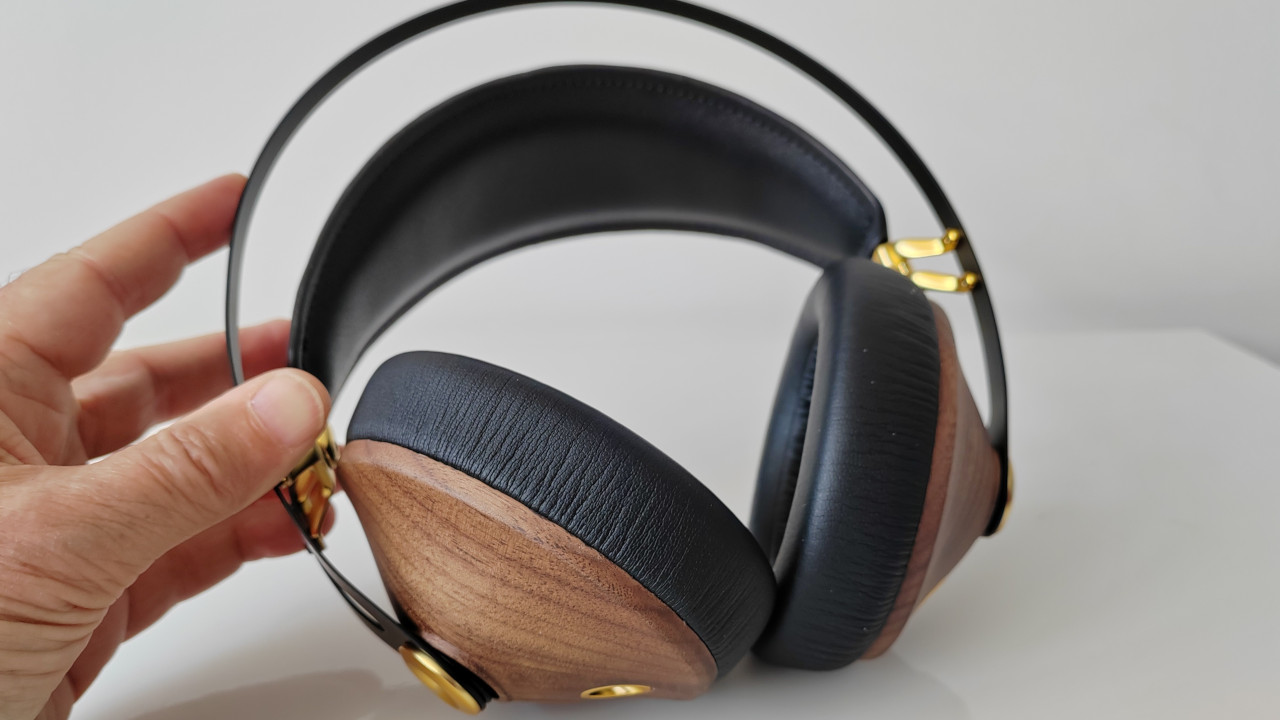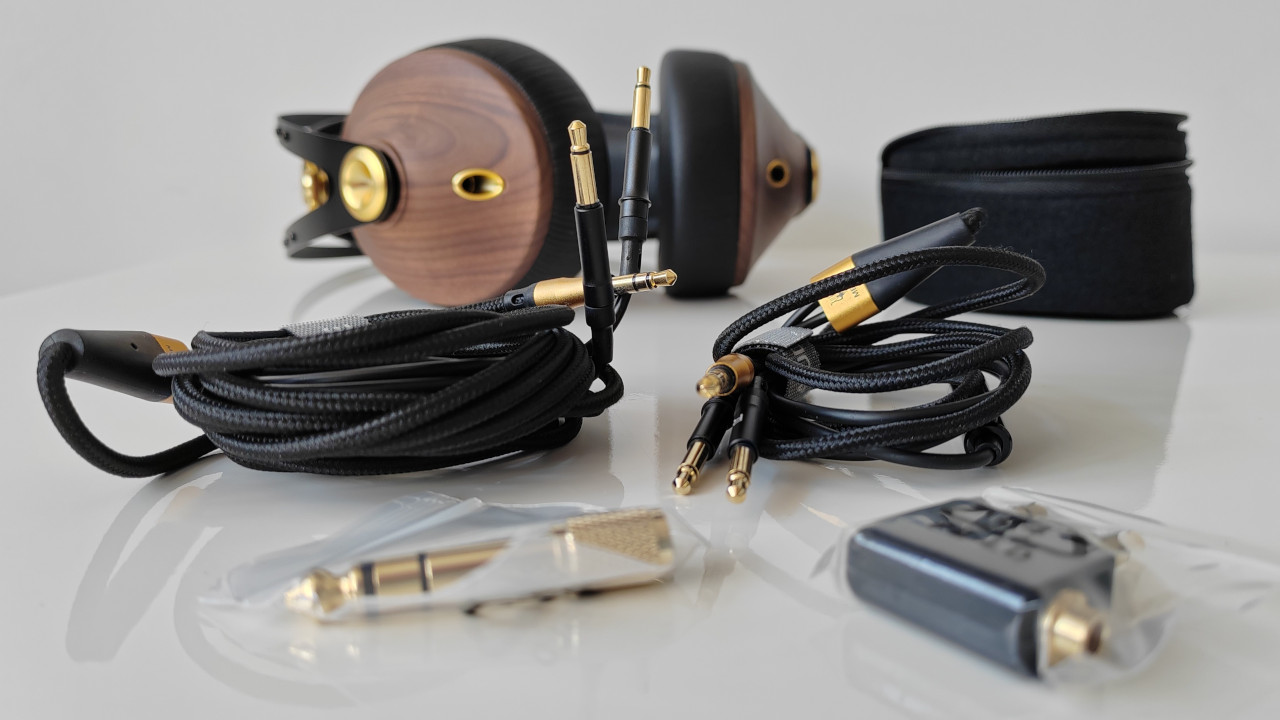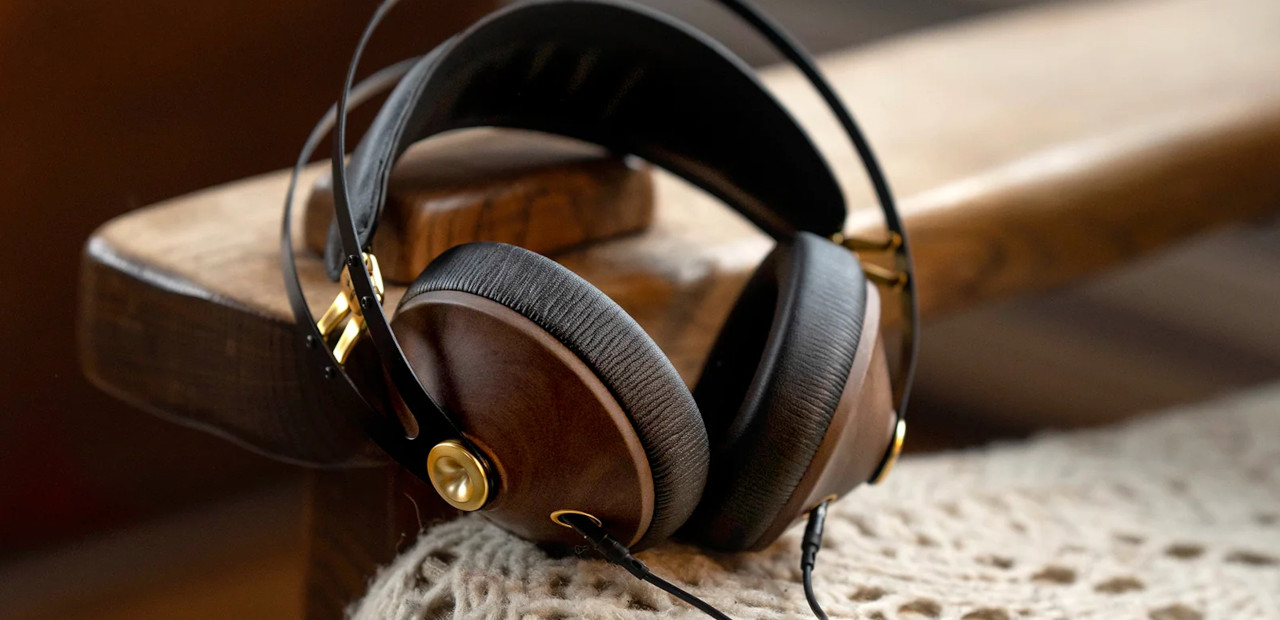Louder Verdict
Looking far more premium than their price tag might suggest, the Meze 99 Classics can be consider brilliant value for money. Their wired design may rule them out for some, but when used with a portable Digital Audio Player, headphone amp or smartphone with 3.5mm minijack, they're a knockout. Dynamic, articulate and musical, these Meze headphones tick all the right boxes.
Pros
- +
Audiophile wired design
- +
Lightweight
- +
Wide soundstage
Cons
- -
No wireless Bluetooth
- -
Best with a DAP (Digital Audio Player)
You can trust Louder
Meze 99 Classics: Design
Meze Audio may not be a household name, but the Romanian headphone specialist has been carving out quite a reputation for itself with high performance headphones that deliver audiophile-grade sonics with an ‘easy to listen to’ character.
The company's Meze 99 Classics epitomise the brand’s approach, with stylish wooden earcups and superior drivers, at a price that won’t break the bank - but how do they fare when fed a diet of ribald rock‘n’roll? Very well, as it happens.
Much like AC/DC's Brian Johnson in his newsboy cap, these the Meze 99 Classics look unapologetically old school. The walnut-veneered ear cups spring tensioned headband, with coppery-gold accents, have a cool retro vibe.
The rigidity of the chromium-manganese alloy headband means you’ll not be able to fold them down for ease of use, but given they weigh just 260g, I’ll give them a pass - they’re light and comfortable to wear for prolonged periods.
The headphones come with a choice of two detachable double ended cables, one 3m and the other 1.2m for portable use. Rather than a single mini-jack, they deliver stereo audio via separate left and right connectors which insert into each cup.
The headphones ship with a hard carry case, in which you’ll find the a pouch containing the cables, plus a chunky 6.3mm adaptor to use with a headphone amp or Hi-Fi system, and an airline entertainment adaptor.

Meze 99 Classics: Features
Unlike so many of their bigger name rivals, there’s not much of an extended feature set to talk about. Wireless connectivity is AWOL, which means there’s no voice assistant action or Bluetooth streaming. If you want a conversation with Alexa or Google you’ll need to look elsewhere.
The latest news, features and interviews direct to your inbox, from the global home of alternative music.
Clever noise cancellation technology may absent from the Meze 99 Classics, although their closed-back design does afford a level of ambient noise isolation.
On the plus side, there are no on-cup controls to master. These headphones are as plug and play as it comes. Given that I tend to spend far too much of my time negotiating with headphones that are invariably smarter than me, I like to think of them as gloriously uncomplicated.
Meze 99 Classics: Sound

The Meze 99 Classics are wonderfully fast and dynamic in no small part due to the accuracy of their proprietary 40mm drivers. The title track to AC/DC’s The Razors Edge is propelled along with formidable force, guitar riff scything all before it, while Johnson’s delivery presented with exactly the right blend of grit and clarity.
Similarly, a high-res download of Lou Reed’s Satellite Of Love from the Transformer album, is revelatory for the price. The 99’s spatial presentation is exceptional, allowing you to listen beyond and around Reed’s honeyed vocal. David Bowie’s background contribution, on the final chorus especially, becomes crystal clear amid the finger snaps and backbeat. Bass performance is measured, without getting overly lumpy.
Muse’s Madness retains its resonant, low frequency electronic hook, but is never lethargic. The Meze’s midrange is balanced and fluid. Matt Bellamy’s distinctive, emotive whine is at one with, but never lost amid layers of synth, and there’s plenty of headroom for terrific toppy detail.
What I particularly grew to like like about the Meze 99’s is their overt naturalism. With so many Bluetooth headphones, particularly those with aggressive noise cancelling, it’s all too common to be aware of the sheer level of processing at work behind the scenes. That’s never the case here.
There’s a welcome purity to the audio, whether you’re listening to hard rock, prog, or blues. The Meze 99 Classics hop genres as easily as Electric Callboy. Everytime We Touch, which segues from boy band pop to metal growls via techno, is seamlessly entertaining.
Meze 99 Classics: The alternatives
The Grado SR325x is a solid rival for Meze 99 Classics. They’re also wired, but adopt an audiophile-style open back design which gives a more airy presentation. However, this rules them out for everyday commuting use. They’re intended for domestic use.
If you’re looking for wireless headphones that are also adept with most genres, then the JBL Tour One Mk2 are a great option. Much like the Meze 99 Classics, these headphones utilise big 40mm drivers that are dynamic and fast. They may not sound quite as convincing with hi-res sources, but they do offer decent noise cancelling.
Related guides
- Best headphones for vinyl: Top headphones for your turntable
- The best budget wireless headphones
- Best headphones for music: supercharge your listening
- The best headphone amps: Boost the mood
- The best kid's headphones: Headphones that are great for children
- How to clean your headphones
Steve is a home entertainment technology specialist who contributes to a variety of UK websites and mags, including Louder Sound, Yahoo UK, Trusted Reviews, T3, The Luxe Review and Home Cinema Choice. Steve began his career as a music journo, writing for legendary rock weekly Sounds, under the nom de plume Steve Keaton. His coverage of post punk music was cited in the 2015 British Library exhibition Terror and Wonder: The Gothic Imagination, as a seminal influence on the Goth music scene.


